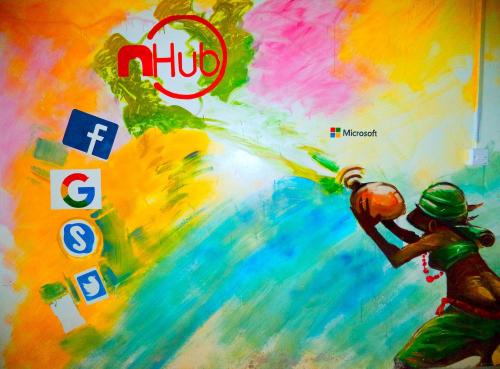You Can’t Fool or Hack Social Media Algorithms

In case you didn’t know, social media sites such as LinkedIn, Instagram, Facebook and Medium have automated algorithms, not run by humans, that decide what content is seen and shown to people.
Let me give you a practical example: if you have 1000 connections on LinkedIn and you post a photo today, the LinkedIn algorithm will decide how many of those 1000 people see your photo — giving them the chance to become part of your vanity metrics in the form of views, likes, or comments.
The algorithm of LinkedIn, in this example, will never show your photo to all 1000 connections. The algorithm will also decide how many people outside of your connections/followers will see the photo.
Many users of these platforms have realized what I’ve just said and have made it their life’s work to try and figure out how the algorithm makes these decisions, then take advantage of it for themselves, and worse, tell you and I how we can do the same thing, thus gaining attention and reaching happiness in life (another lie).
The game of cat and mouse is to find ways to get the social media algorithm to show your content to the maximum number of people as possible, which is supposed to make it more likely you will go viral.
Trying to fool the social media algorithms to gain attention and reach more people is the work of witches and wizards — not you.
Take it from me because I’ve tried and it has never worked.
Here are some of the common strategies for hacking social media algorithms:
Group chats
Create a group chat and have people that have lots of followers ‘like’ or comment on your post. (Even when this happens, if the content is rubbish, the post still reaches no one and I have tested this one to death.)
Headlines
Writing amazing headlines is supposed to help your content be seen more because it’s the first thing people read. Write a great headline and you’ll be seen by millions.
Change your copy
Change the copy of your photo or video and it will make all the difference.
The first-hour rule
In the first hour, the algorithm decides your fate. If you don’t get the maximum number of people engaging in the first hour, your content is dead and will run out of steam.
Respond to every comment
Social media is about being social and responding to comments helps the algorithm see that people are talking about you.
Spend all night responding to every comment and even writing your own comments. Write more comments yourself than there are from your actual audience.
Thumbnails
Have the best visually appealing thumbnails on your video and it will get shown to more people. People decide what they watch based on the thumbnail.
Tagging
Tag all your friends and people with huge followings otherwise they won’t know about your amazing post and could miss out on your awesomeness.
Copy the content that is doing well
Search what content is doing well and then copy it yourself.
Choose trending topics
If it’s Valentines Day, talk about it. If the subject is currently trending, so will you if you talk about it.
Timing
Publish your work when people are online and be conscious of not posting on Sundays when people are relaxing away from their phone.
Why You Can’t Hack the Algorithm
The reason you can’t hack the algorithm is that its job is to help the content that people find valuable be seen.
And what is seen as valuable by an audience is subjective.
There are so many factors that go into a piece of content being valuable and you can never predict them. Everything from the headline, to copy, to artwork, to timing affects your content in some way and it could be all or none of these factors that cause your work to be seen.
Every time you post, different hidden factors are working for you and against you in secret. Trying to hunt down the monsters negatively affecting your work is pointless. You can’t see them; they’re hidden.
The lesson I have learned from trying to predict the way a social media algorithm works is to forget all the hacks and strategies.
The only strategy is this: think about your work in the eyes of the audience and aim to be as helpful as possible.
The Problem
The challenge of my experiments with trying to hack social media algorithms is that it took up a huge amount fo time. My free time was spent jumping down each of these rabbit holes looking for answers when there was none.
The other issue was that I was beginning to overthink everything I posted, leading me down a path of perfection.
Questions such as these held me back:
- Is the headline really good enough?
- What happens if the first hour is a disaster?
- Will I have time today to respond to every comment?
- Could the cover image be better?
All day I would sit there overthinking my content rather than posting as much as I can and learning about myself in the process.
The idea of hacking social media algorithms just prevents you from putting in the work to reach mastery and that’s the real problem.
Incongruency
Every time you try and hack the algorithm, you’re not being yourself and that’s what does the real damage. Content that is effective reaches an audience because of its authenticity.
Trying to fool social media algorithms, in the process, causes you to behave in a way that is incongruent with who you are. Comparing and copying the success of others takes center stage when being the best version of yourself works far better.
The best content that is highly shareable comes from a good human being who is being congruent with their message.
Stress
By attempting to hack social media algorithms, you are unconsciously trying to jump the queue of life. People consume your work when you have earned the right and shown up enough.
My biggest challenge from hacking social media algorithms was that it caused massive amounts of stress. Every moment I was thinking about what I could be doing better or what I was not currently doing that was hurting my work.
All of that stress makes the idea of writing an article feel overwhelming. You begin to associate the creative process with stress and that goes against everything you need to keep going.
Before You Move Forward, the Entry Pass
None of what I have said so far will matter if you haven’t met the minimum requirements: you need to have shown up for long enough.
Even if you do everything mentioned above, if it’s your first day or your first month on social media, you probably haven’t earned the right yet. Showing up and being consistent is the invisible metric an audience will hold you accountable to before they will seriously look at your work. Don’t forget that.
A Different Game You Can Win
One experiment to try instead of hacking social media algorithms is to create a goal to help one person per piece of content.
The way you measure it is whether you got one message or email from each piece of content you publish. For someone to consume your work and go through the extra steps of contacting you directly, that means you’ve spoken to them and got through to them with your message. This is powerful.
This is the game I’m currently playing with myself. It turned out to be an achievable goal and it puts my focus on being helpful rather than trying to continuously look good, which is impossible.
There have been many times I believed I could hack social media algorithms. Even when all the hacks were implemented and should’ve worked, they didn’t. Posts that I thought were helpful or would really inspire someone ended up being like screaming into a forest and only hearing back the echo of my own voice.
Other times I have written something in three minutes that was absolute nonsense and it has gone on to reach more people than could ever be predicted or expected. (These, funnily enough, were the posts I almost didn’t hit publish on.)
Playing the game of attempting to hack social media algorithms is wasting your time, stopping you from being consistent, causing you to be someone you’re not and stressing you out unnecessarily.
The algorithm can’t be hacked: think about your audience, be helpful and don’t worry about what works and what doesn’t.
Your results are subjective and consistency of work helps you get better, which will take you much further than hacking algorithms.
Originally Posted on: Medium.com
Post Your Ad Here

Comments